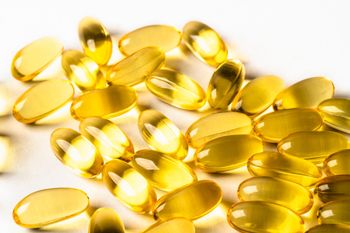
Fresh Versus Frozen Veggies and Fruits: Which Is More Nutritious? Study Considers Storage Conditions
U.S. consumers typically store fresh fruits and vegetables for up to five days, such as in a refrigerator, before eating them, researchers say.
Are fresh vegetables and fruits more nutritious than frozen vegetables and fruits? That’s the question researchers set out to answer with a new study that took into account the impact of storage conditions on the nutrient content of fresh and frozen produce.
U.S. consumers typically store fresh fruits and vegetables for up to five days, such as in a refrigerator, before eating them. Researchers say that the longer fresh produce is stored, the more nutrients the produce can lose due to enzymatic and oxidative degradation.
In this study conducted at the University of Georgia (Athens, GA), researchers analyzed a range of fresh and frozen produce, including blueberries, strawberries, broccoli, green beans, corn, spinach, cauliflower, and green peas. The items were purchased at local supermarkets.
Using certified reference standards, the researchers analyzed the levels of the following nutrients: vitamin C, beta-carotene, folate, and minerals. Fresh produce was analyzed on the day of purchase (fresh), as well as again after five days of refrigerated storage (fresh-stored).
In many cases, there was not, or not a lot, of statistical difference between the fresh and frozen fare. There were some exceptions: in terms of vitamin C (ascorbic acid), frozen green peas had higher levels of ascorbic acid than fresh or fresh-stored green peas; by contrast, frozen spinach had lower levels of ascorbic acid than fresh or fresh-stored spinach. For beta-carotene, frozen nutrient content was generally on par with fresh and fresh-stored nutrient content, with the exception of blueberries, which had higher beta-carotene content in fresh and fresh-stored forms than in frozen form. Frozen green peas actually had a higher level of beta-carotene than fresh or fresh-stored green peas. And, for folate, frozen produce performed equally well as fresh produce, with the exception of broccoli, whose folate level was highest in fresh form. And, in some cases-such as with blueberries, corn, and green peas-folate levels were significantly greater in frozen form than in fresh-stored form. Researchers said that mineral levels did not vary much between fresh, fresh-stored, and frozen varieties because minerals are not organic in nature and do not deteriorate the same way that vitamins do.
This study shows that while fresh produce loses vitamin content over time, frozen produce may retain these nutrients equally so or better, the researchers say.
“Freezing is, in essence, nature’s pause button,” Ronald Pegg, PhD, the study’s lead researcher and associate professor, department of food science and technology, at the University of Georgia, told Nutritional Outlook. “Freezing technology is very advanced now and is very well controlled in order to maintain the quality as well as the sensory properties associated with the frozen fruits and vegetables. They have better textures, better color, and, of course, the nutrients are maintained.”
That’s not to say that frozen produce is infallible. “Like any organic piece of food, over time there is deterioration,” Pegg says, “but, as I said, freezing is like a pause button on the deterioration of the nutrients. It is very, very slow compared to that of fresh or fresh-stored fruits or vegetables.”
This study is unique in that it reflects consumers’ real-life habits-the tendency to store fresh produce for a period of time after purchasing, Pegg adds. It also reflects the fact that, in the supply chain, fresh produce may spend a week or more in the hands of producers, wholesalers, and retailers, before consumers can even purchase them-time during which nutrients can deteriorate.
“In many ways, the study is very unique in that we do not control the produce in terms of its passage through the supply chain,” he explains. “So, we don’t say that all of these blueberries are from Georgia and that they’re exactly three days old when we analyze them. For all we know, they could be two weeks old, or a week-and-a-half old; they could be from Chile, or they could be from Canada somewhere. We did not control the source nor the age of the produce; it was in the supply chain and we just took it. This actually mimics true consumer purchasing habits because consumers don’t know whether [the produce they buy] is two days old or five days old.”
Despite evidence supporting frozen fare, many consumers traditionally view fresh produce as more nutritious than frozen produce, Pegg says. “Consumers have this perception that fresh is much, much better than frozen, which is indeed not the case at all. If that hypothesis were correct, we’d see that, even with such purchasing habits [as we used], frozen would have significantly less content of nutrients than the fresh or fresh-stored counterparts, and in fact, this is not the case at all. In most cases, they are not statistically different at all in terms of the nutrients that were present. And, in some cases, particularly when you compare between frozen to fresh-stored, you see that the frozen produce actually outperforms the fresh-stored counterpart.”
The Frozen Food Foundation sponsored the University of Georgia study. The study is now seeking peer-reviewed publication.
In related fruit and veggie news,
Newsletter
From ingredient science to consumer trends, get the intel you need to stay competitive in the nutrition space—subscribe now to Nutritional Outlook.





